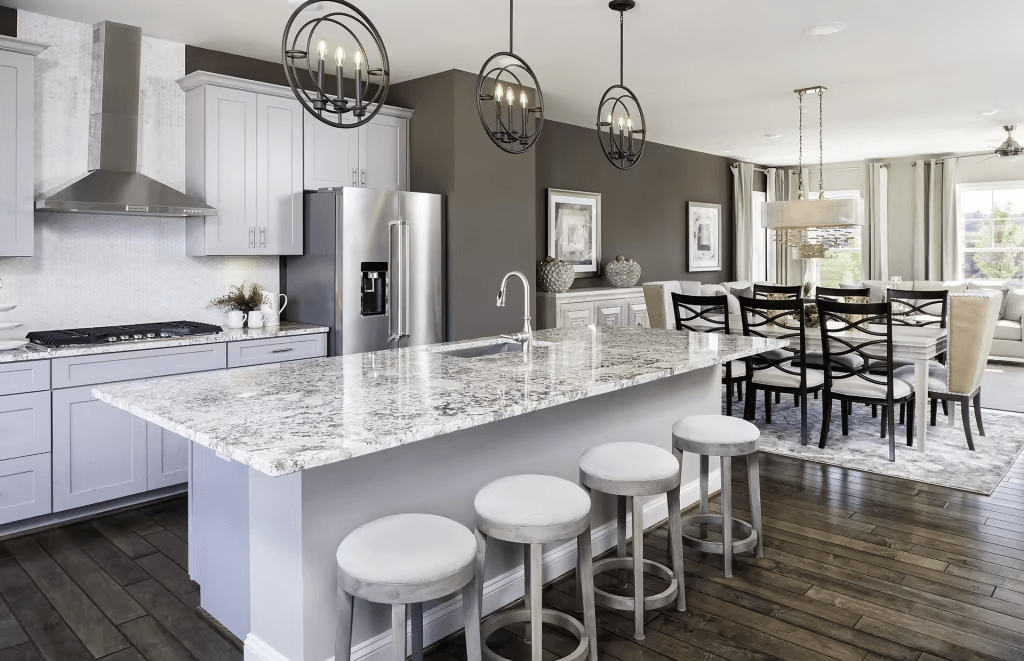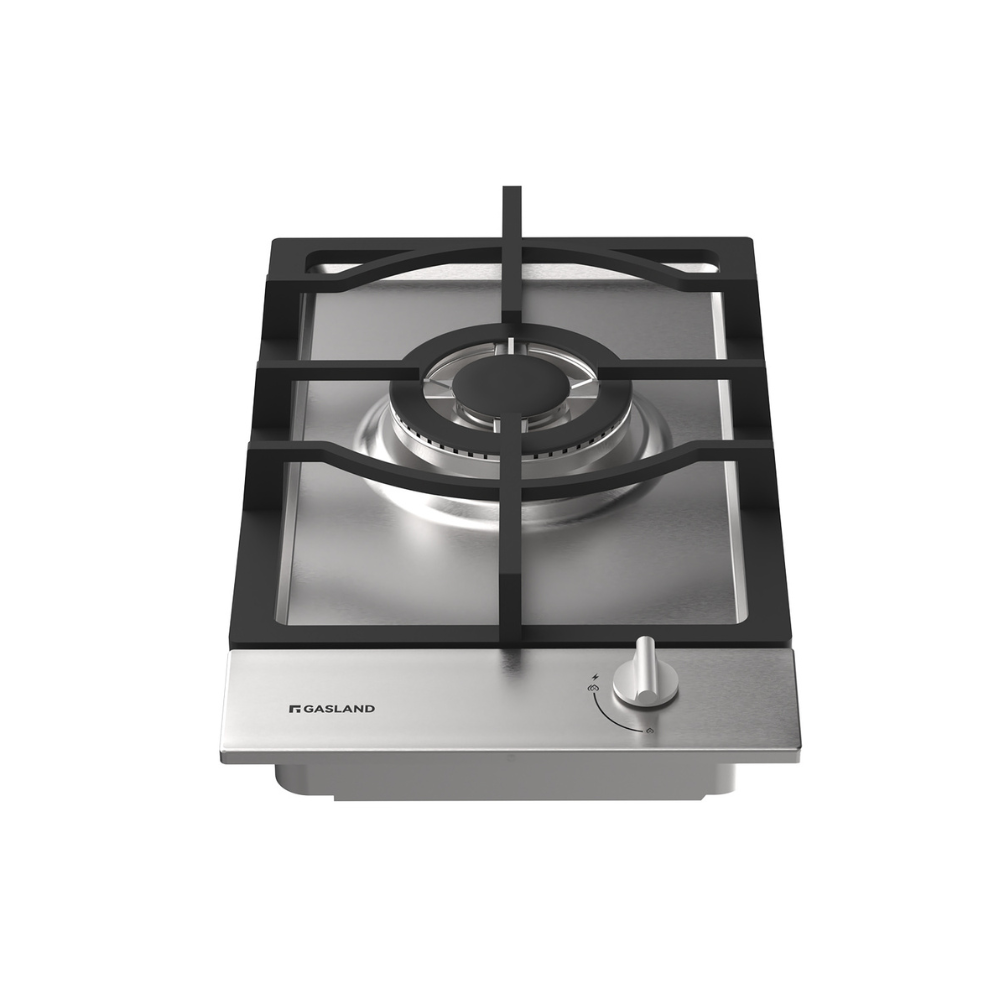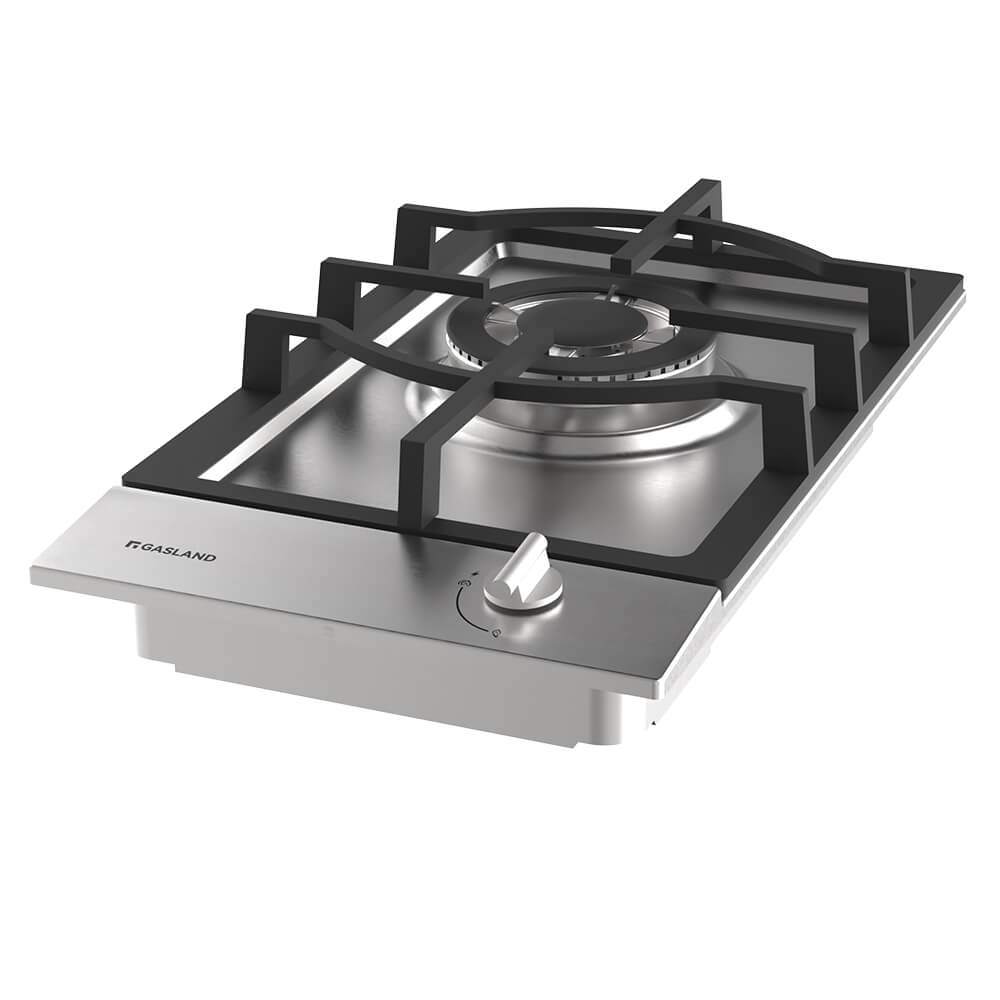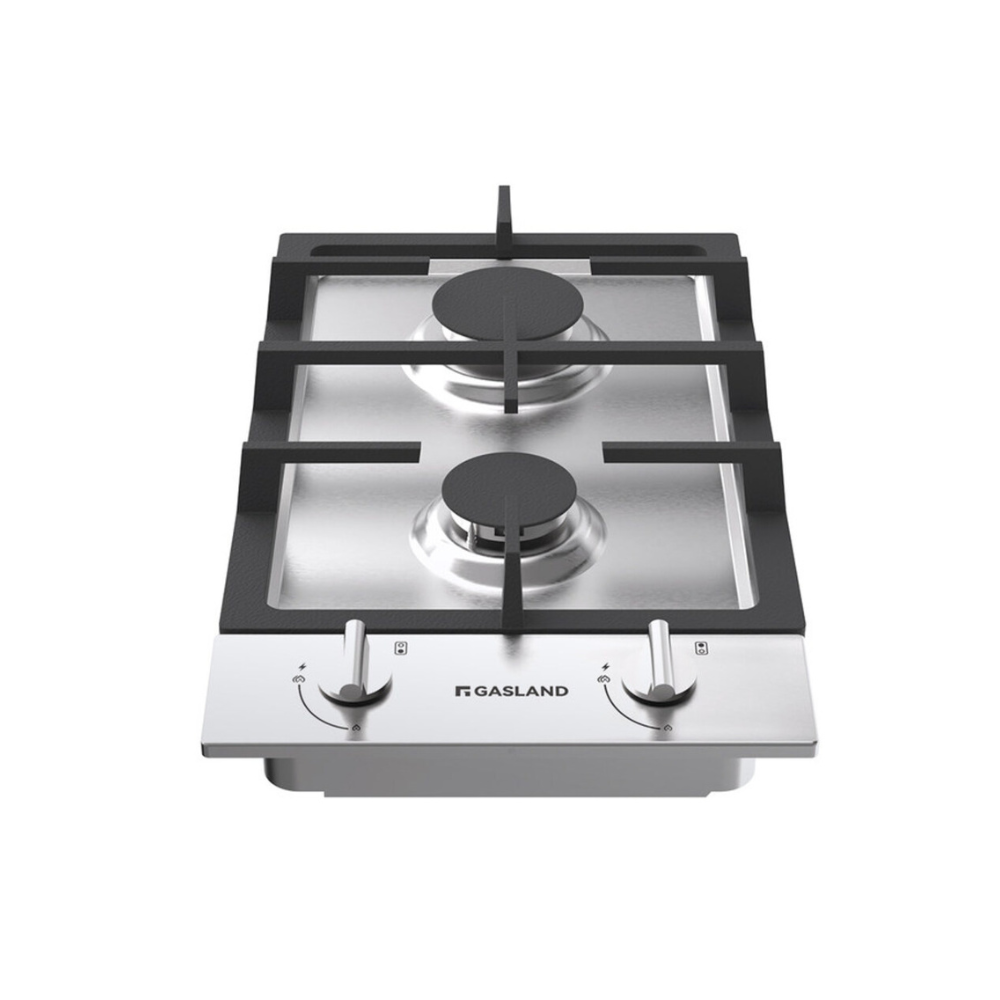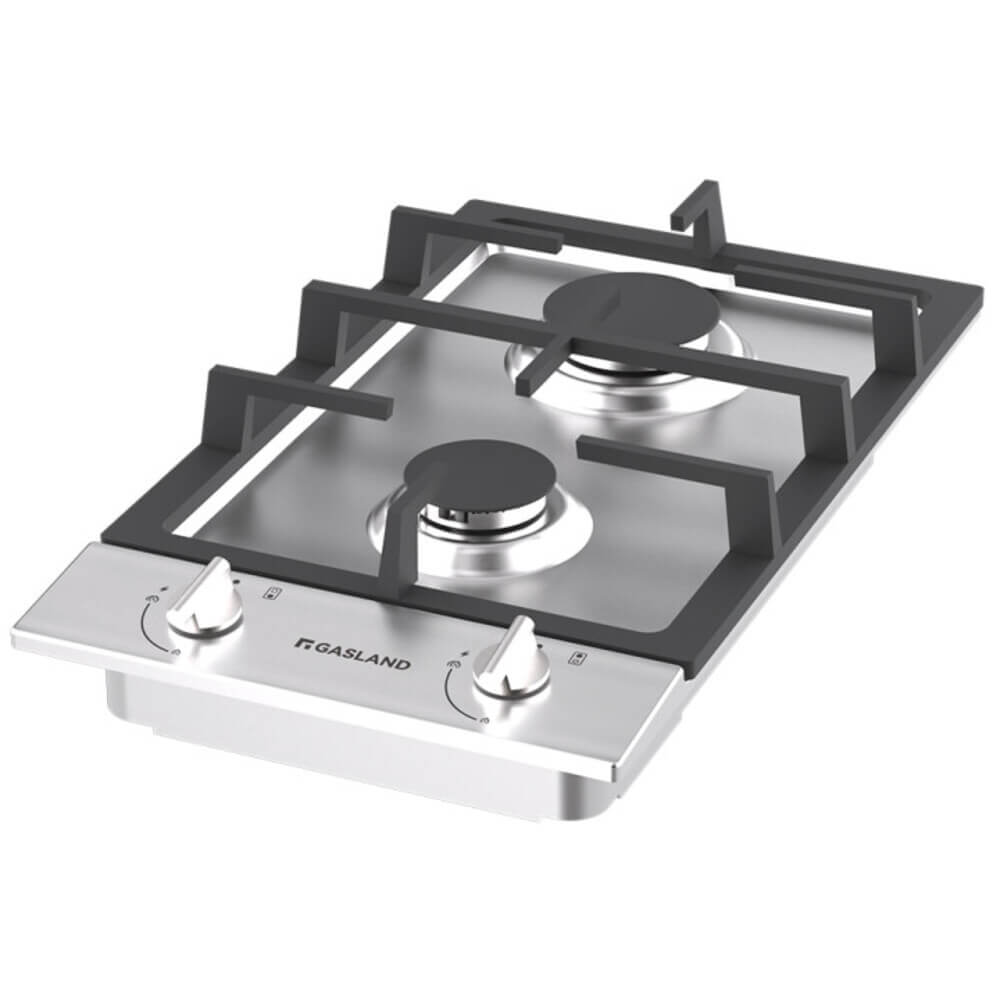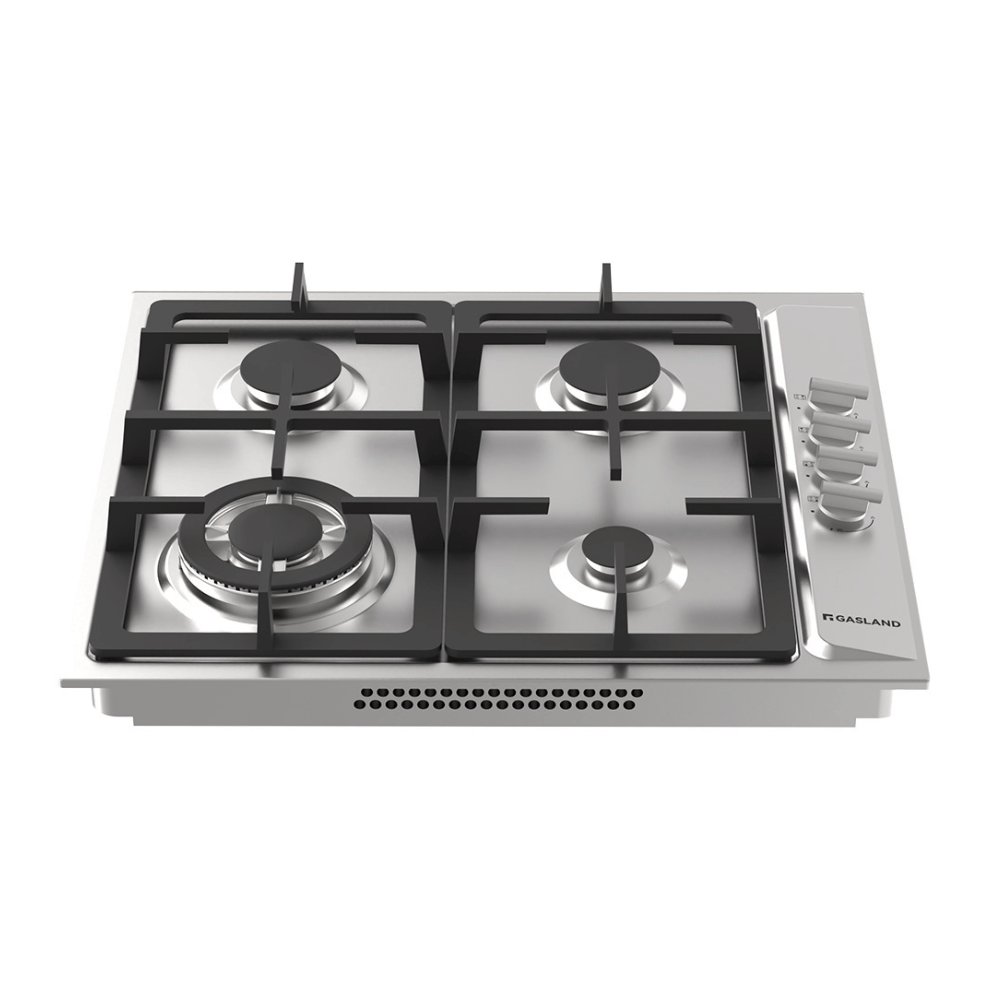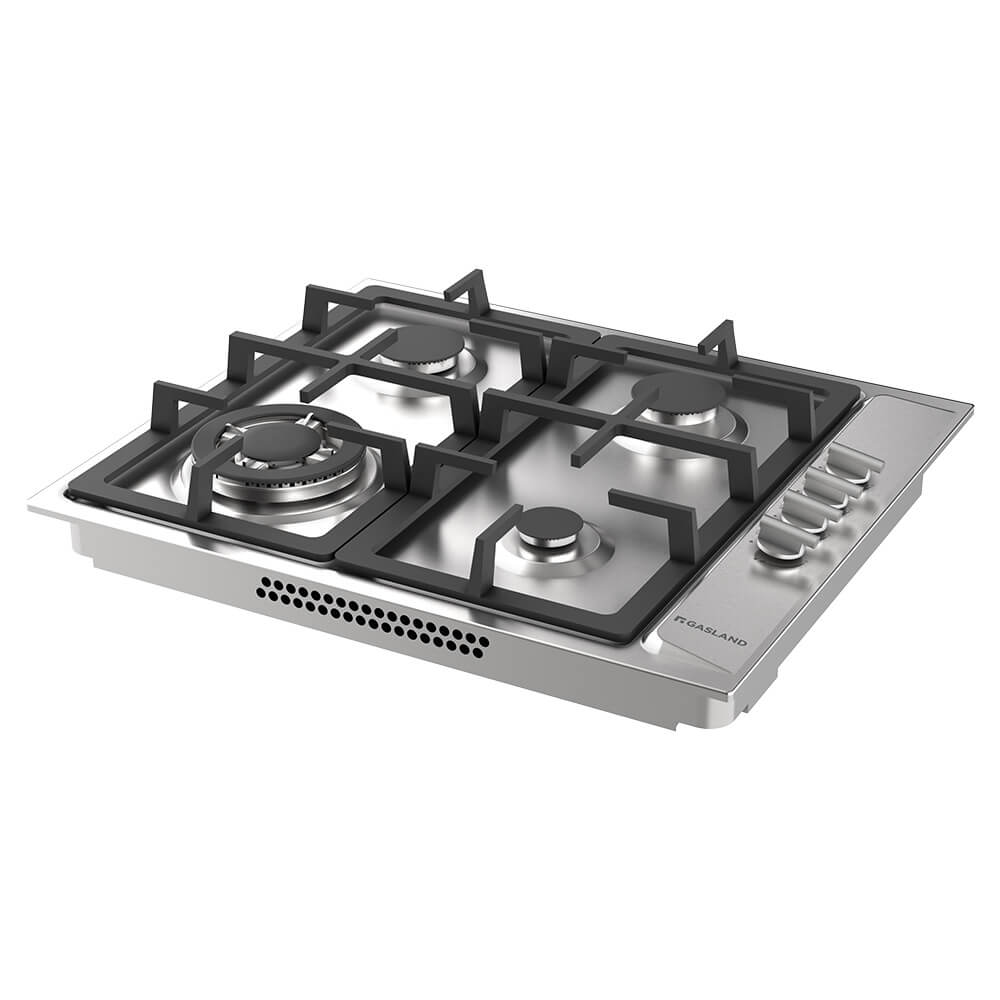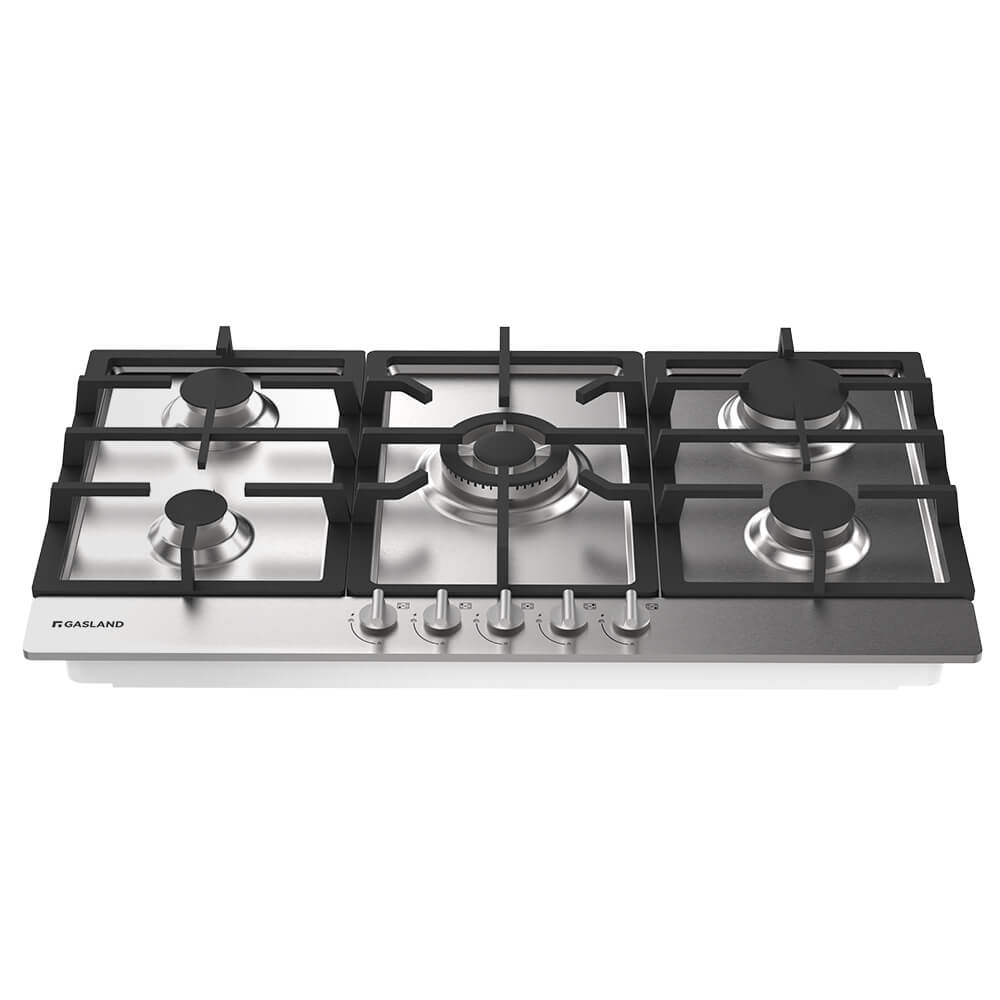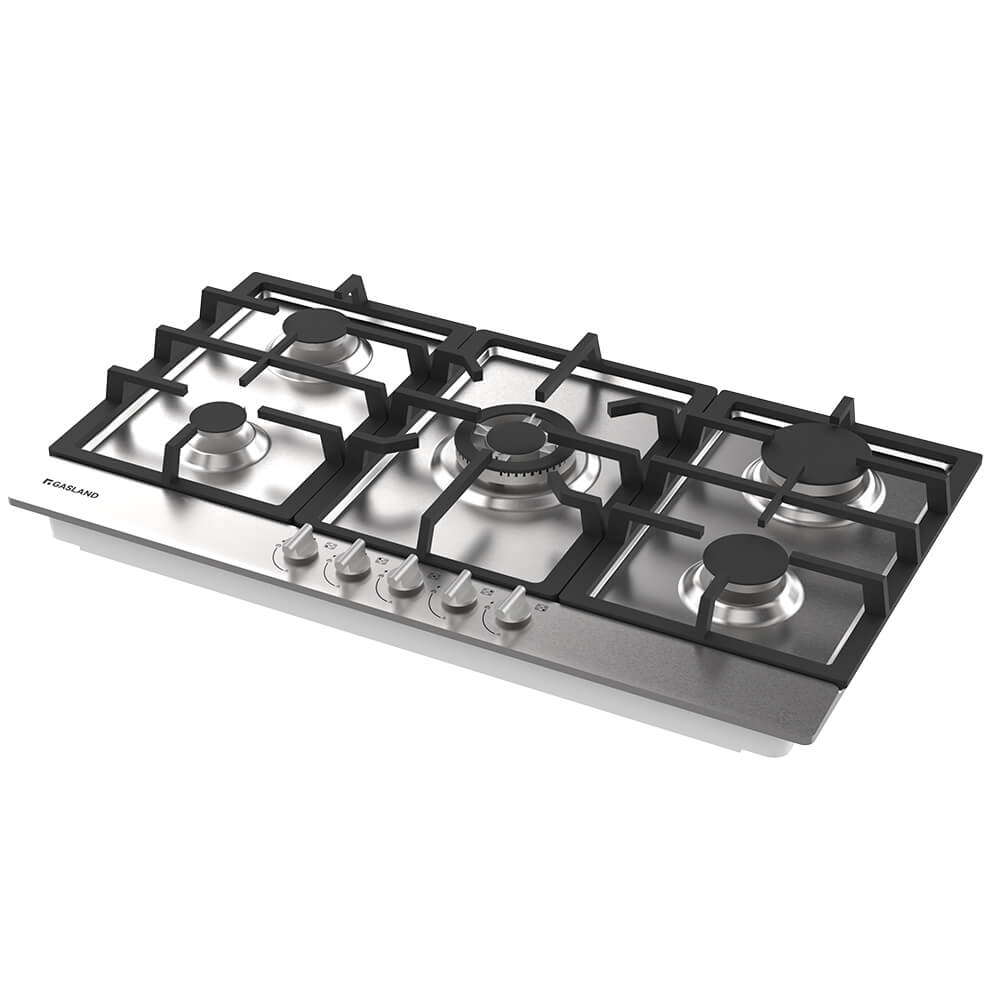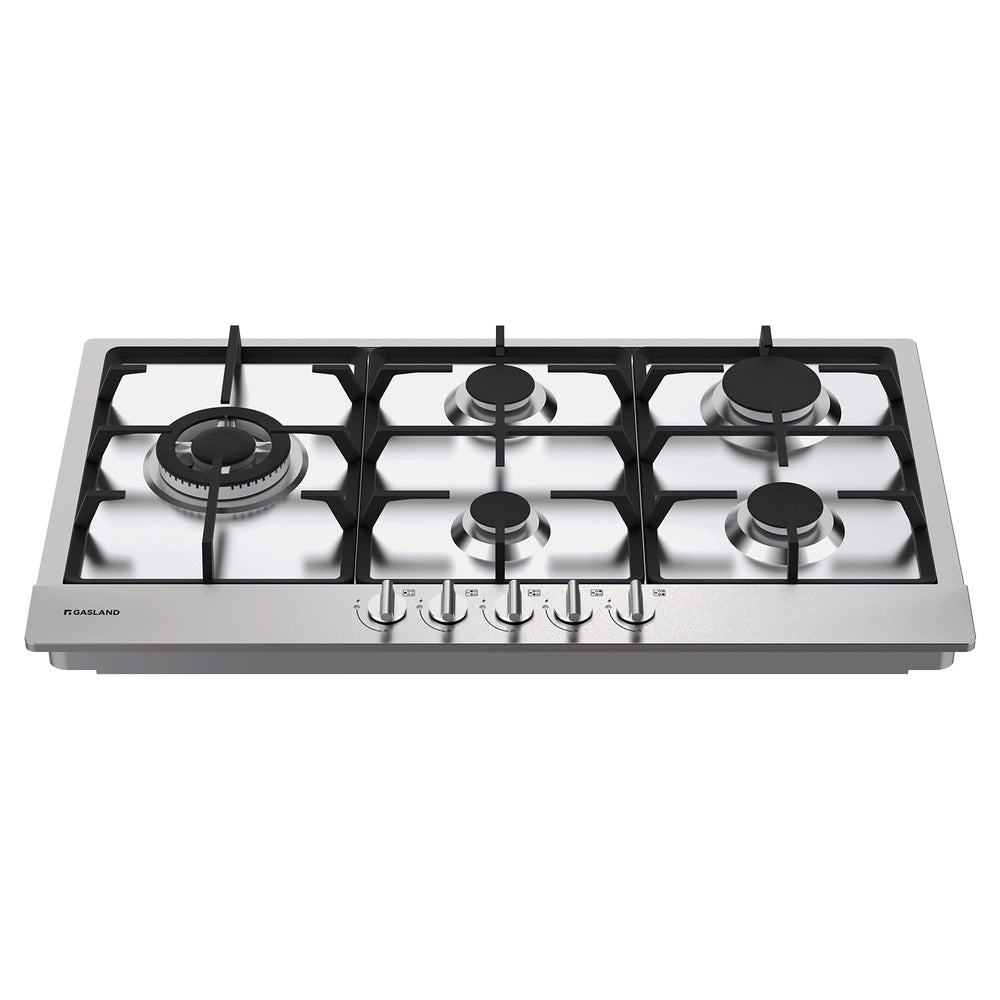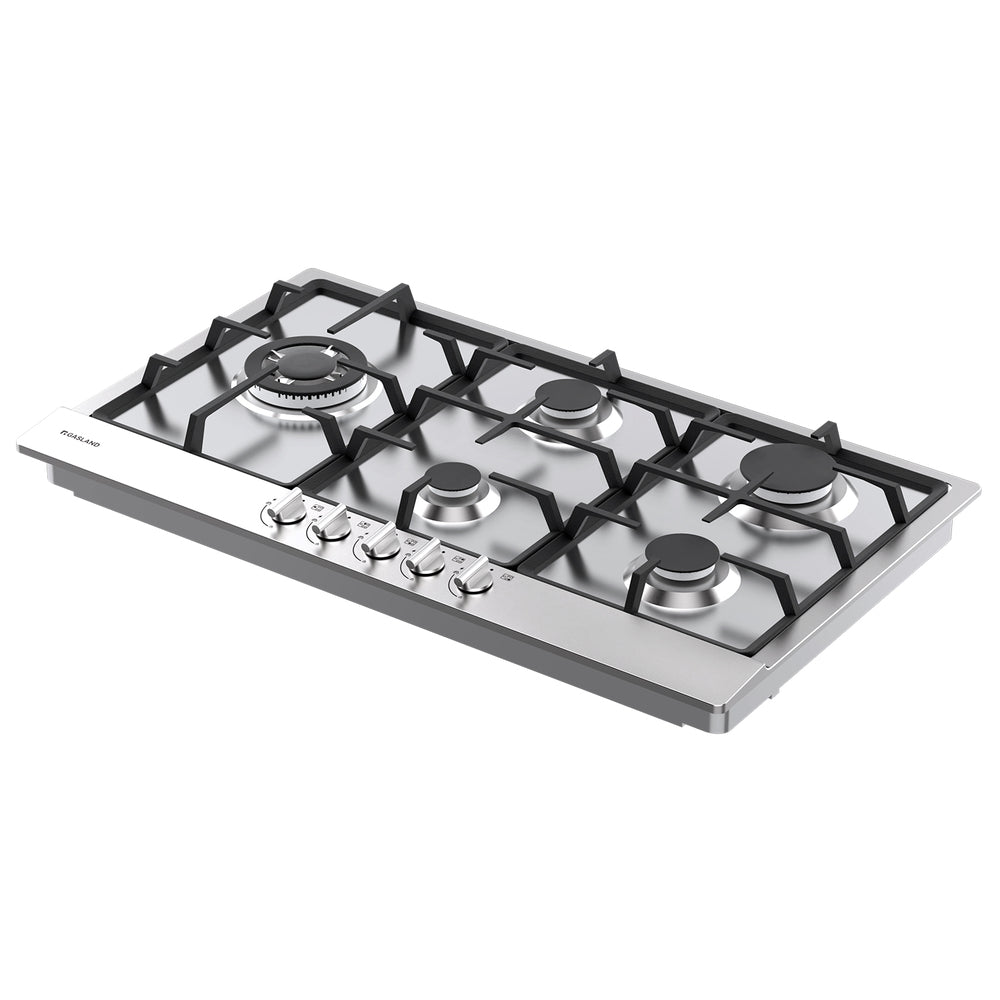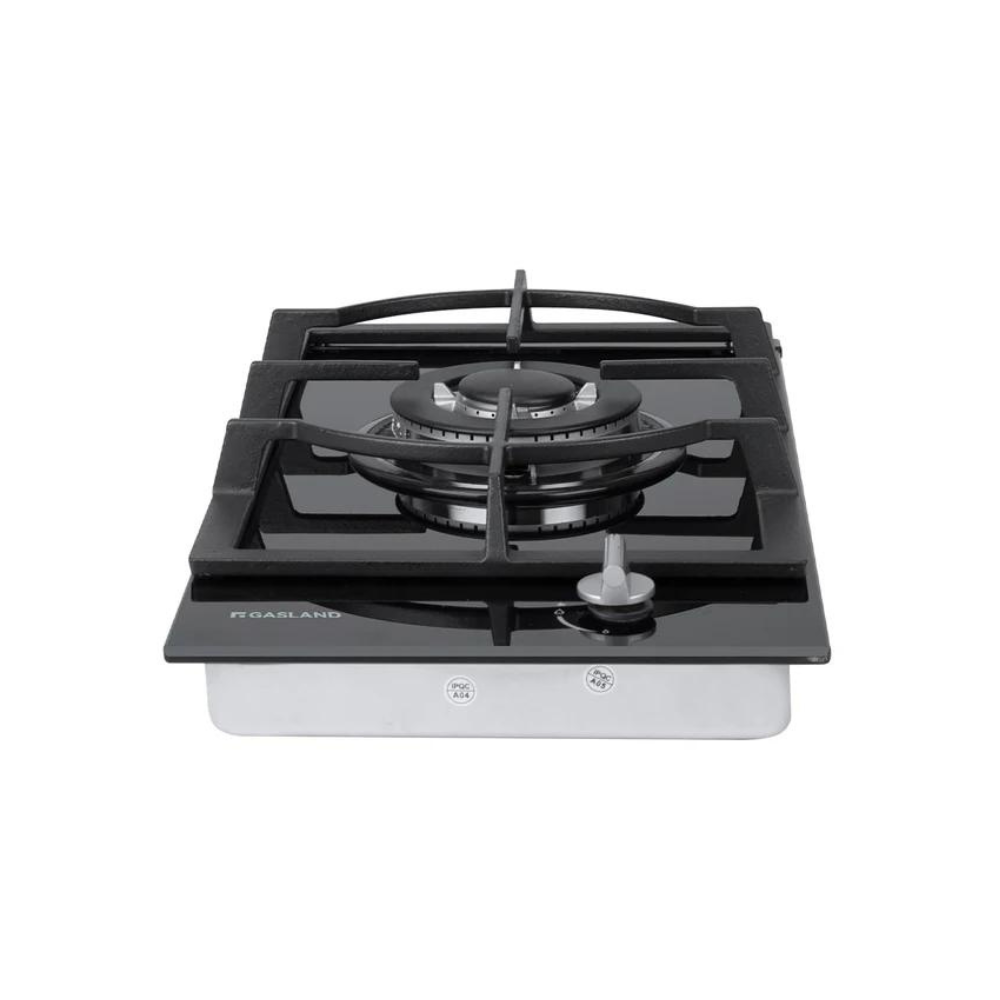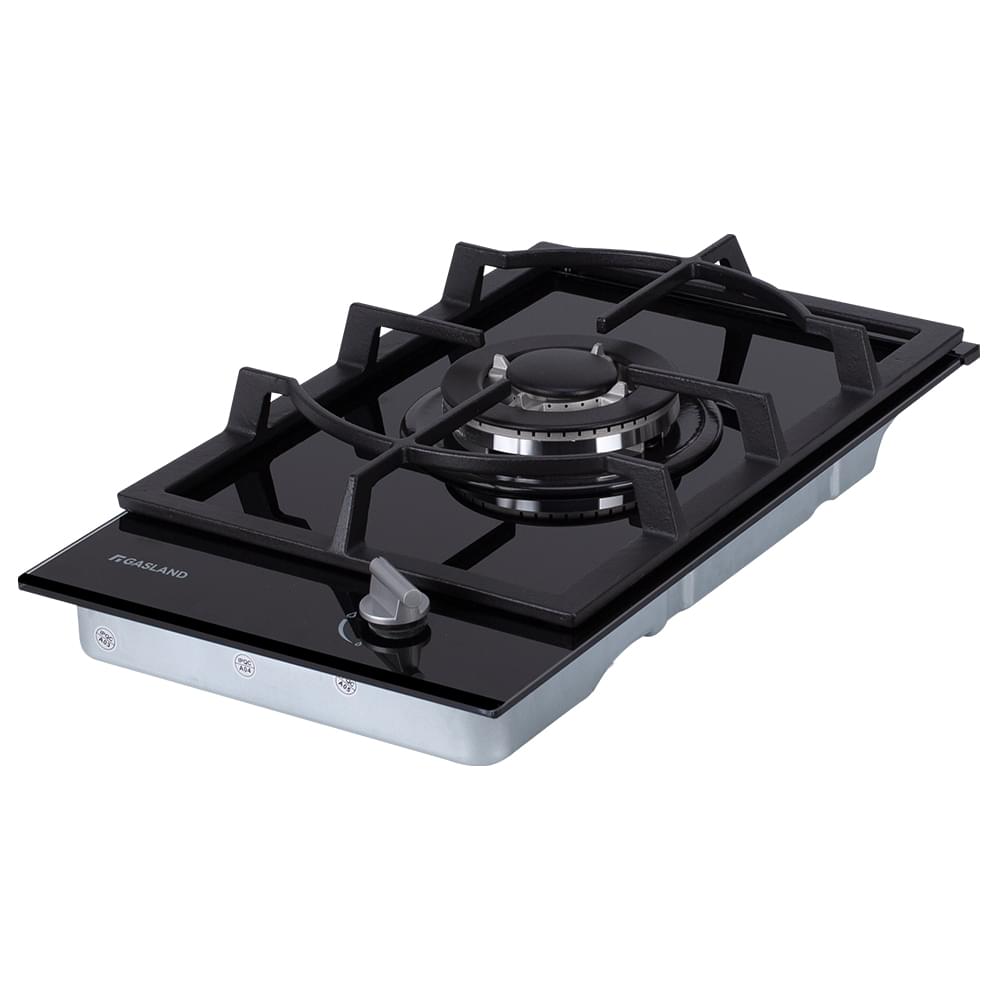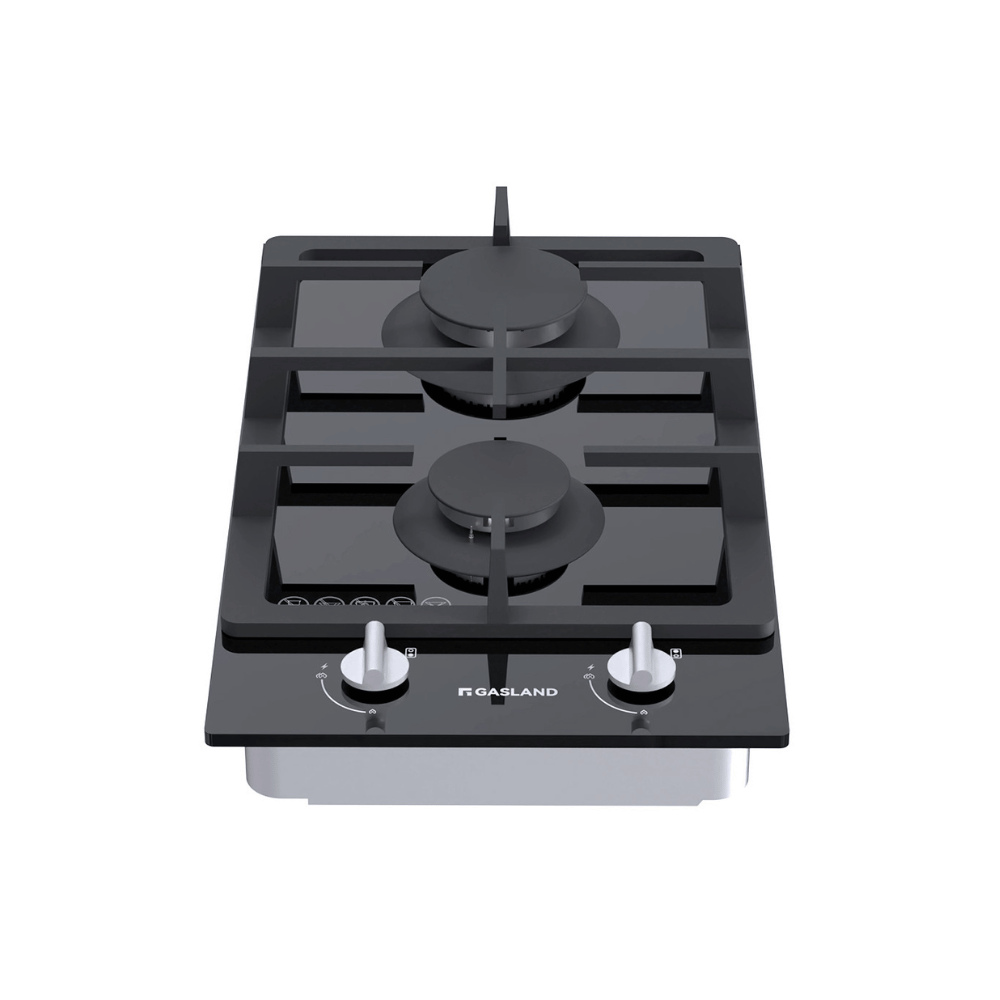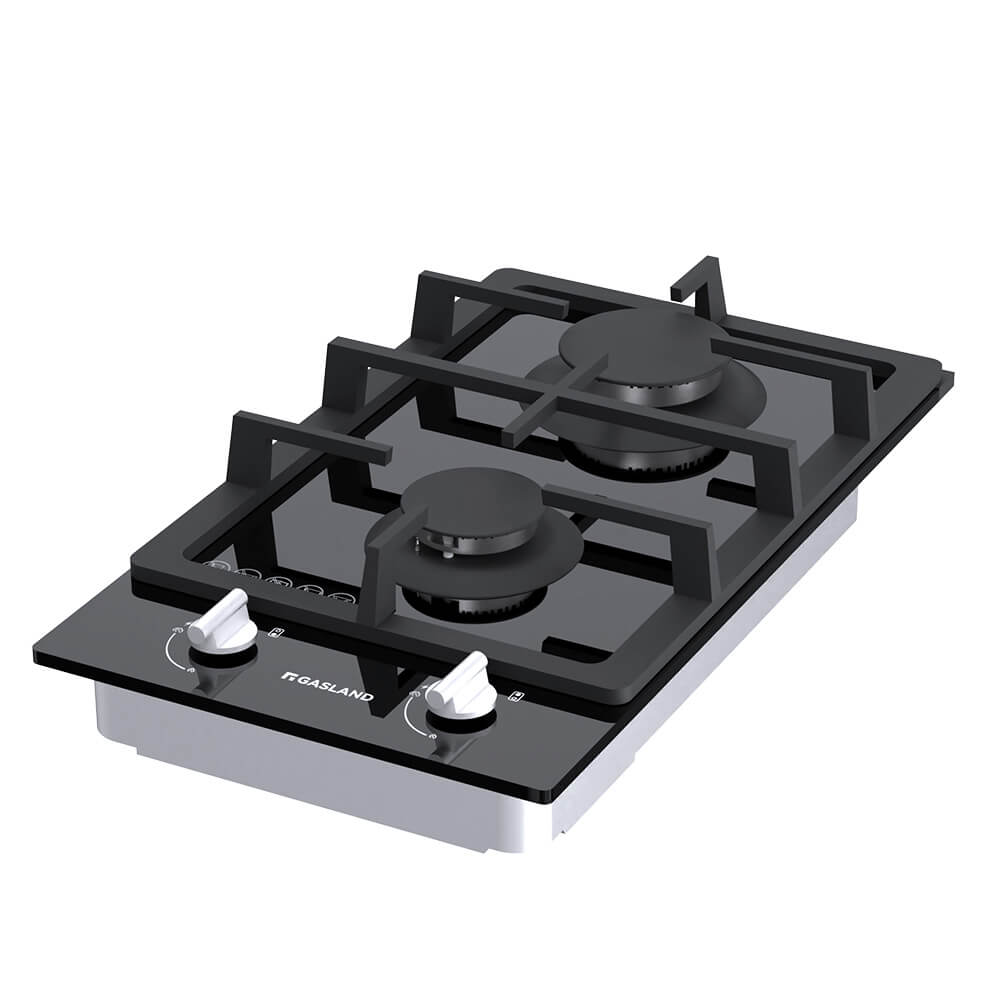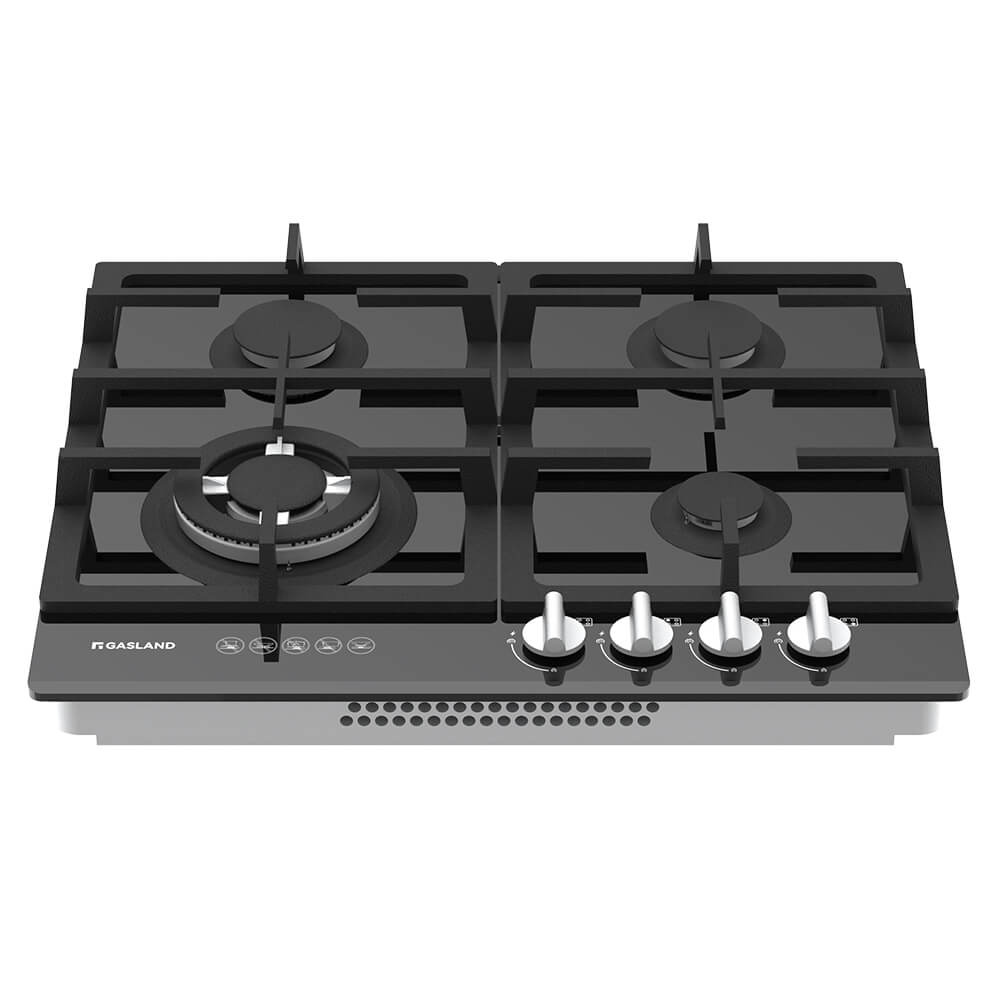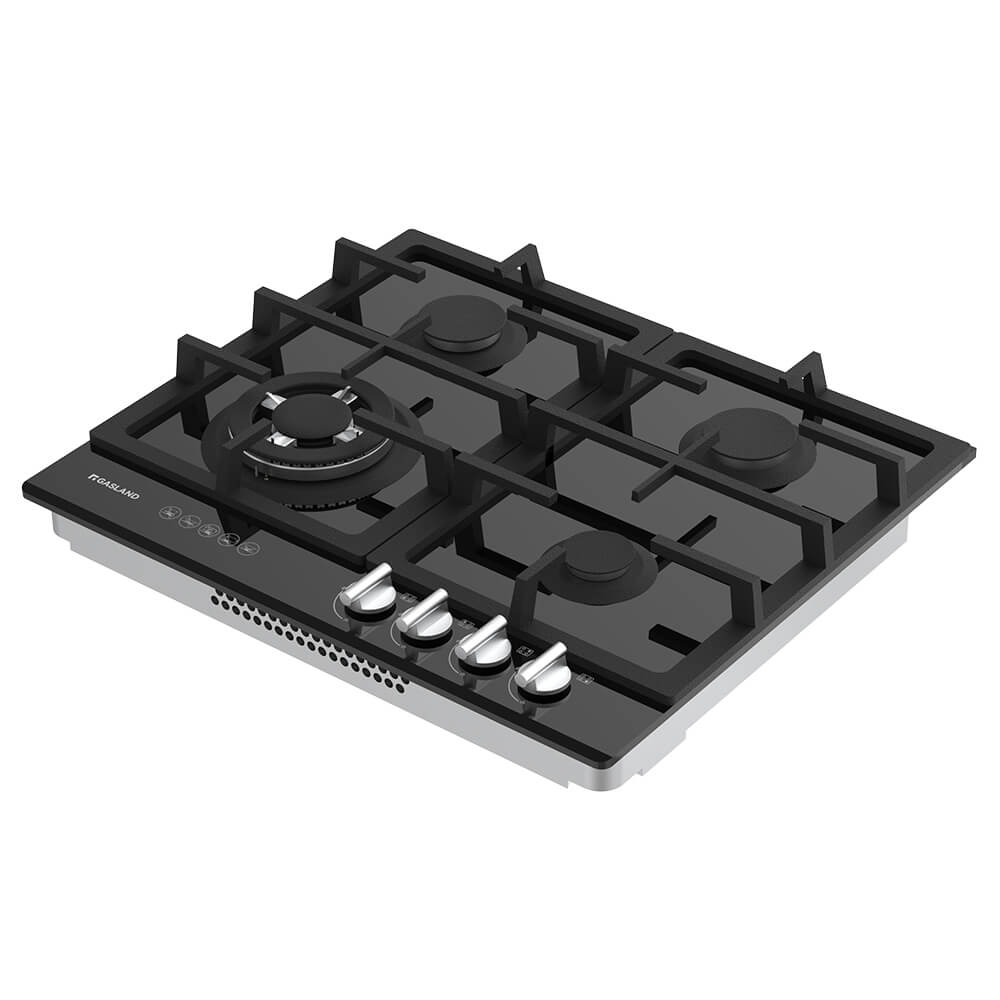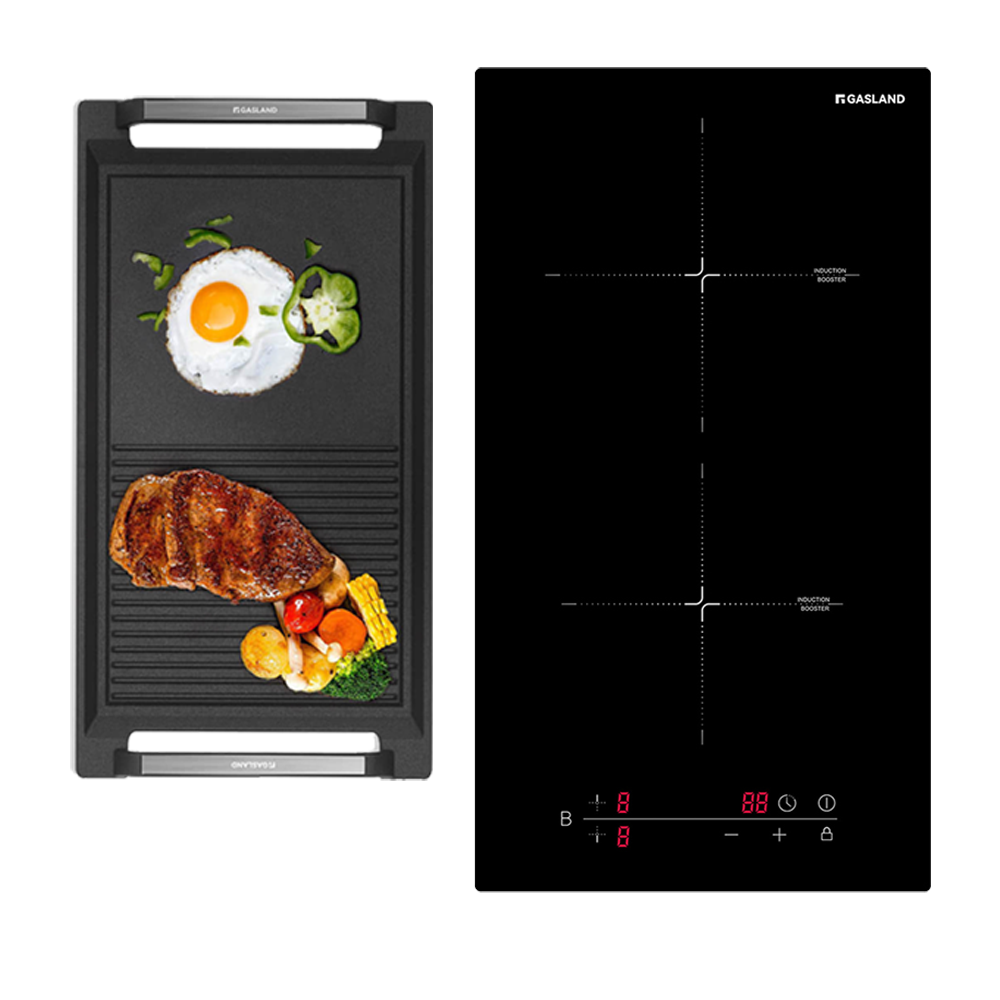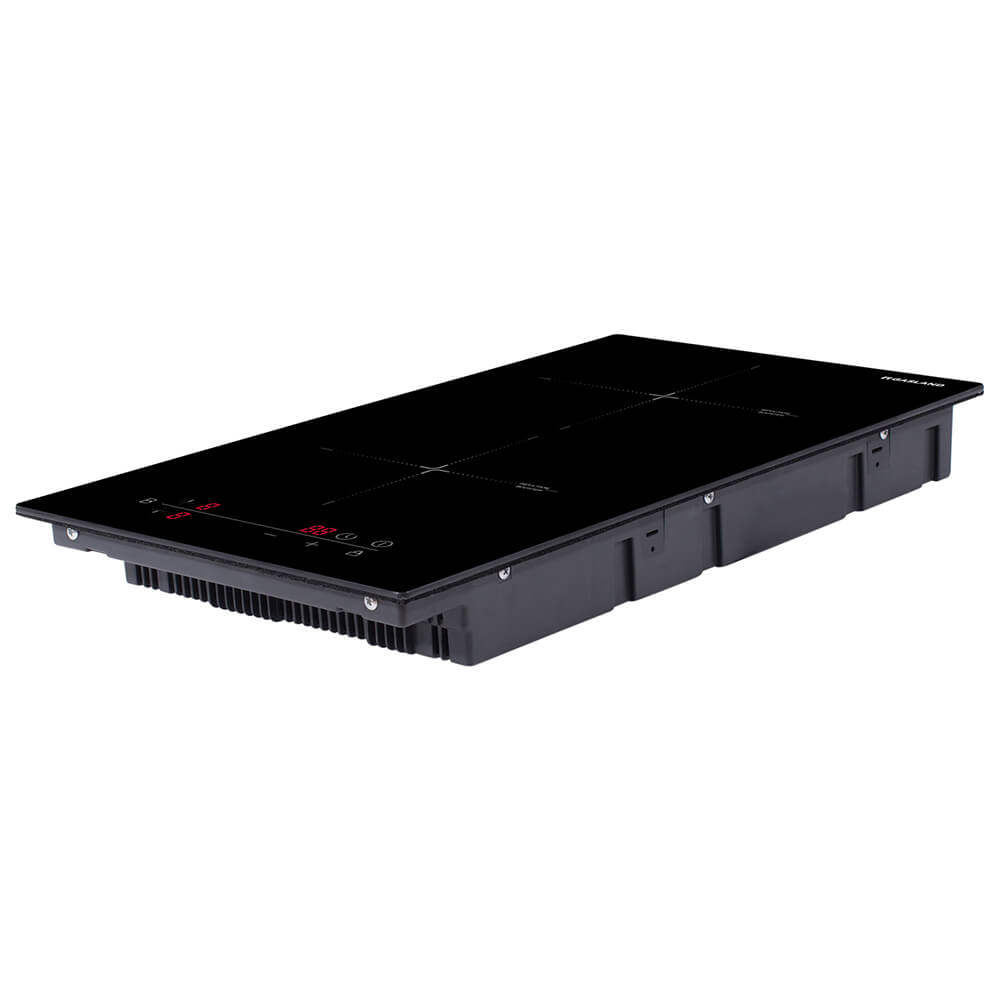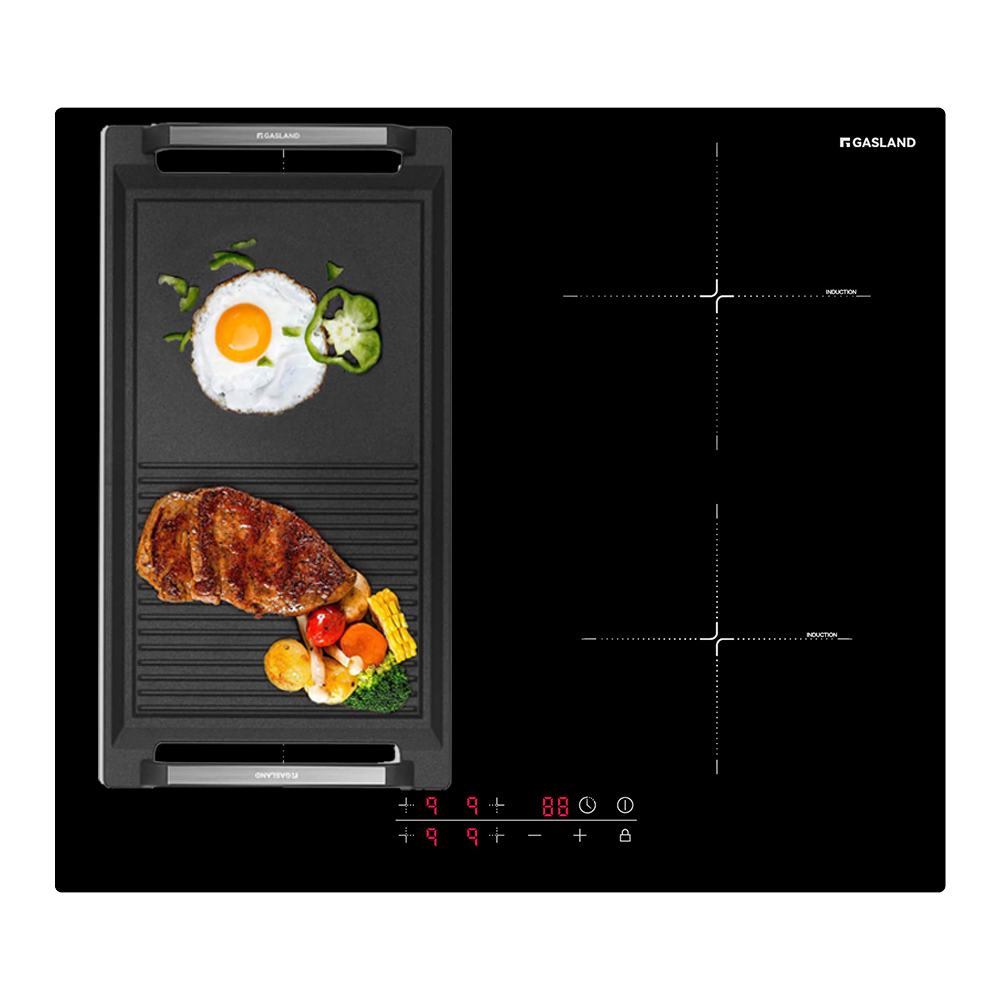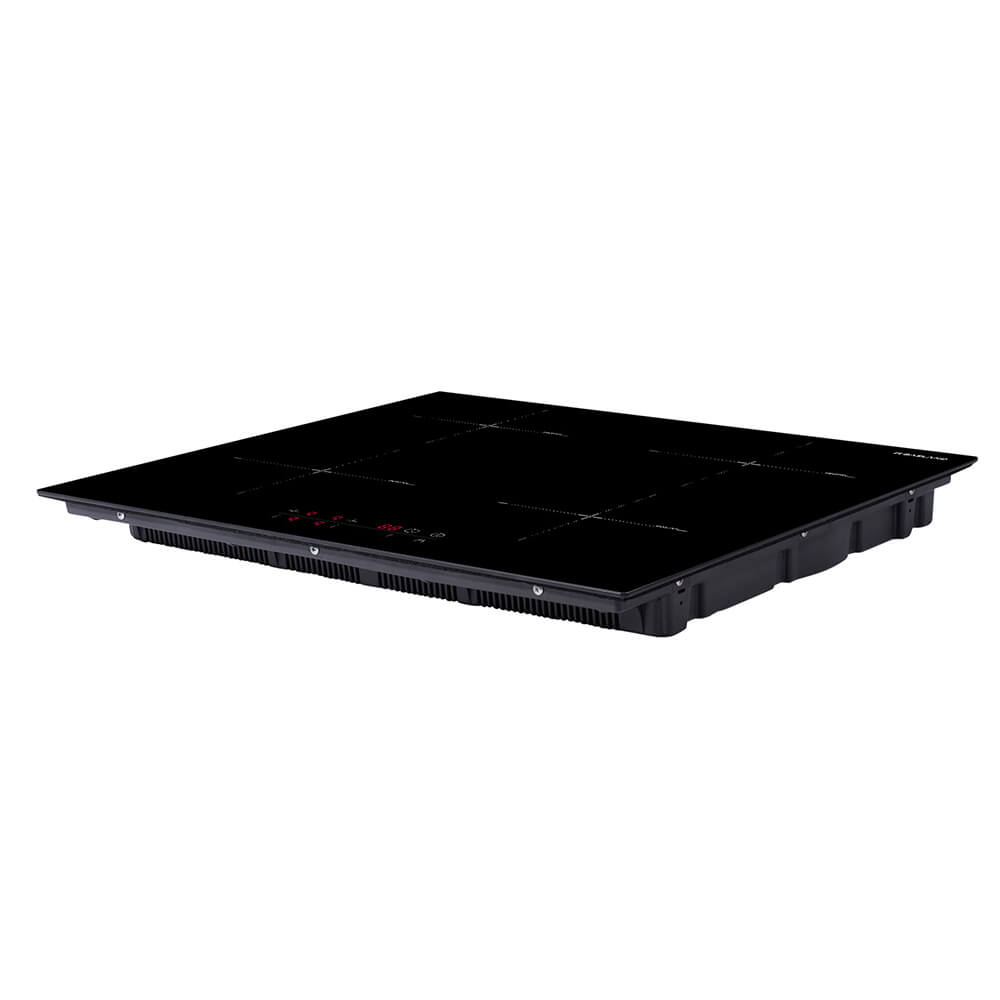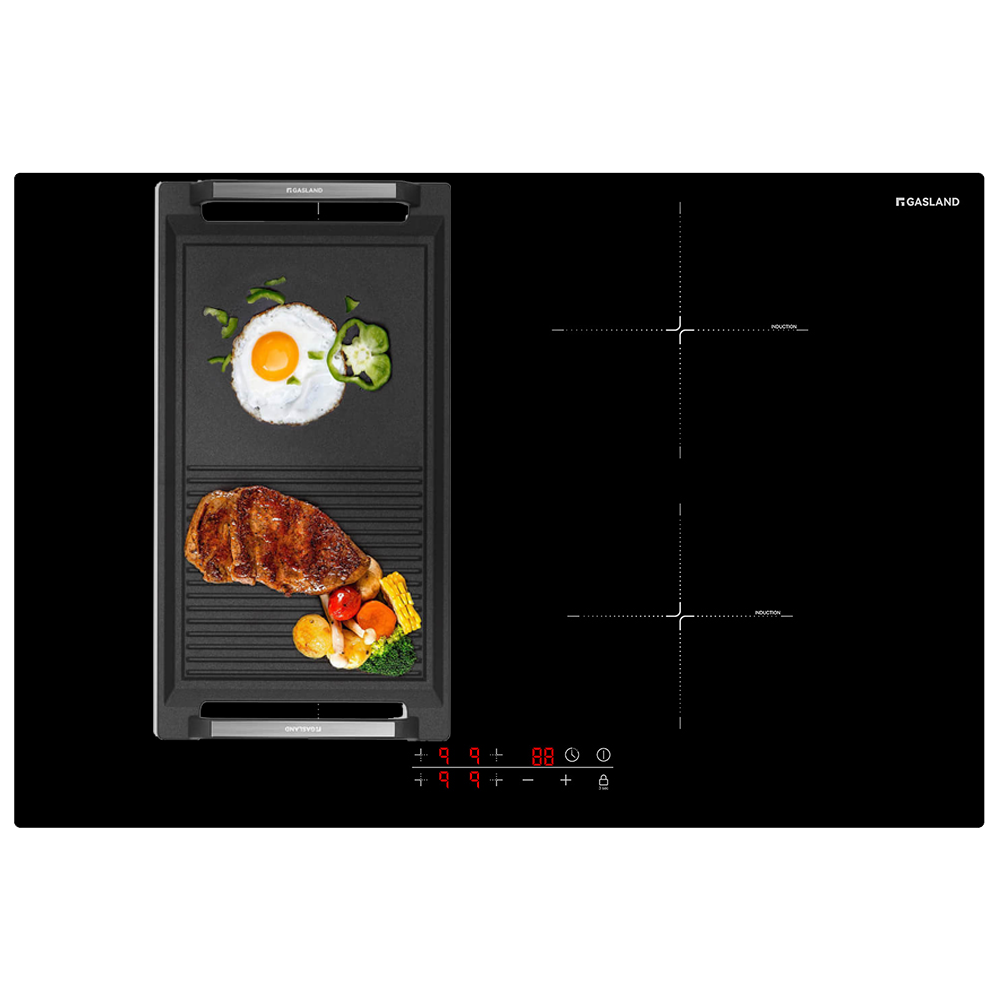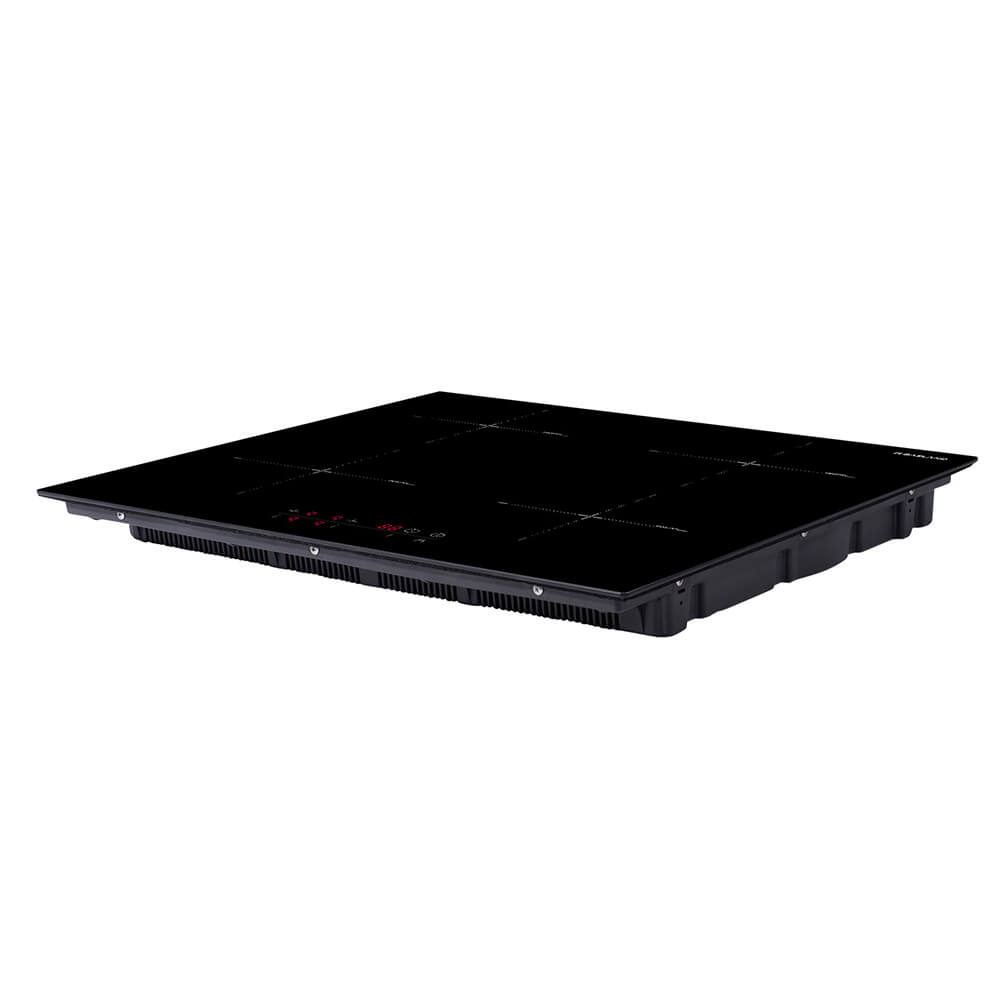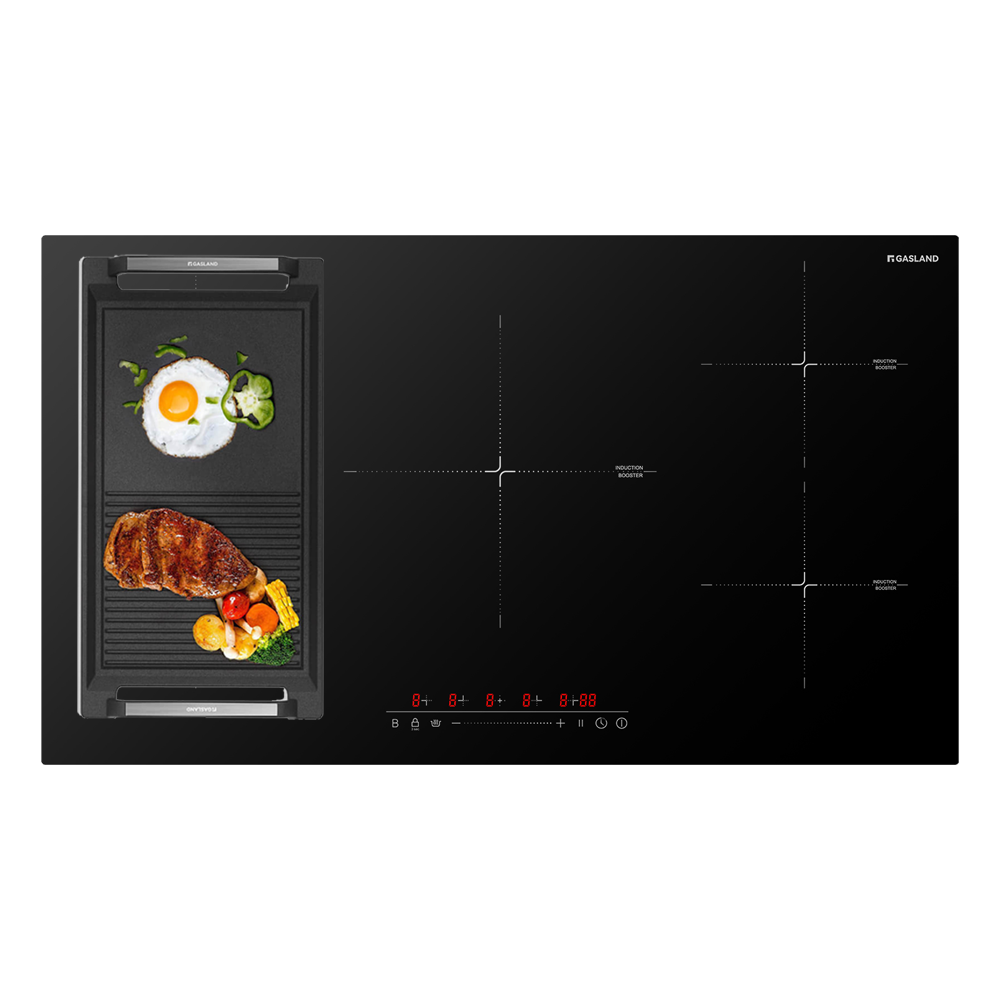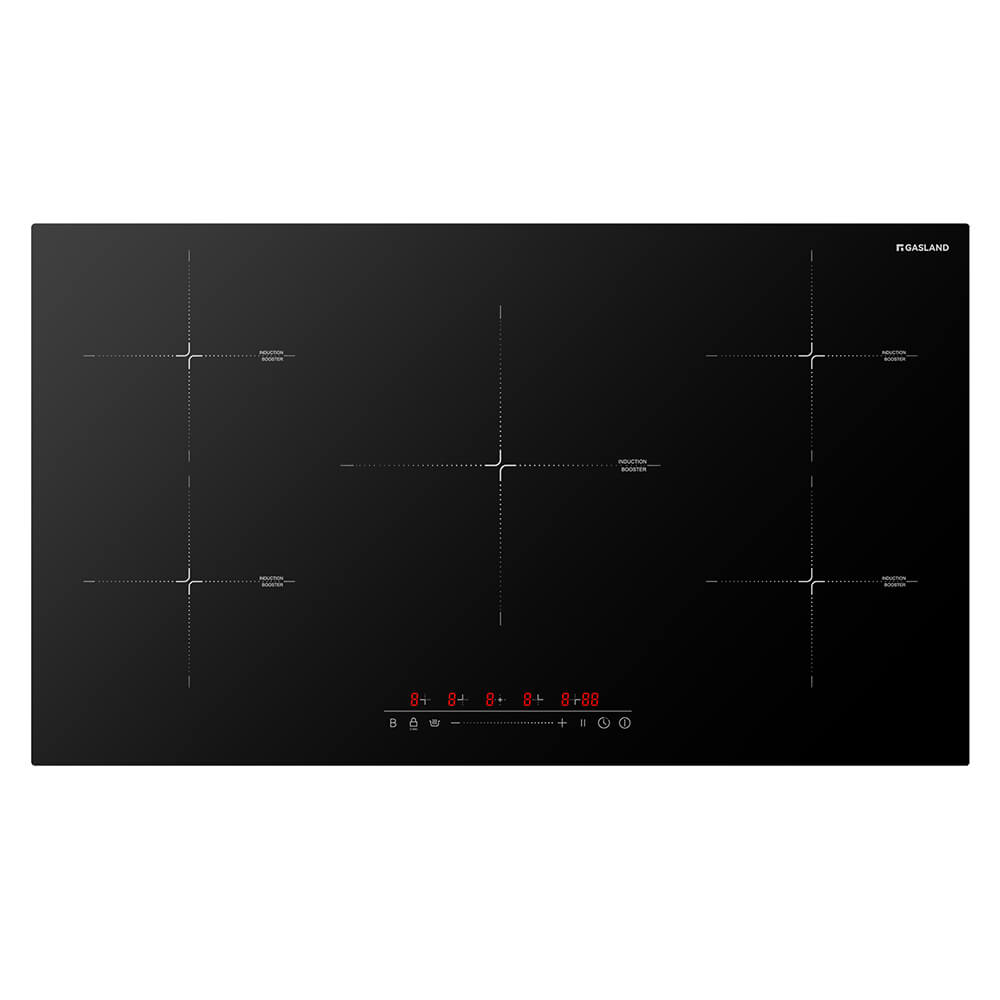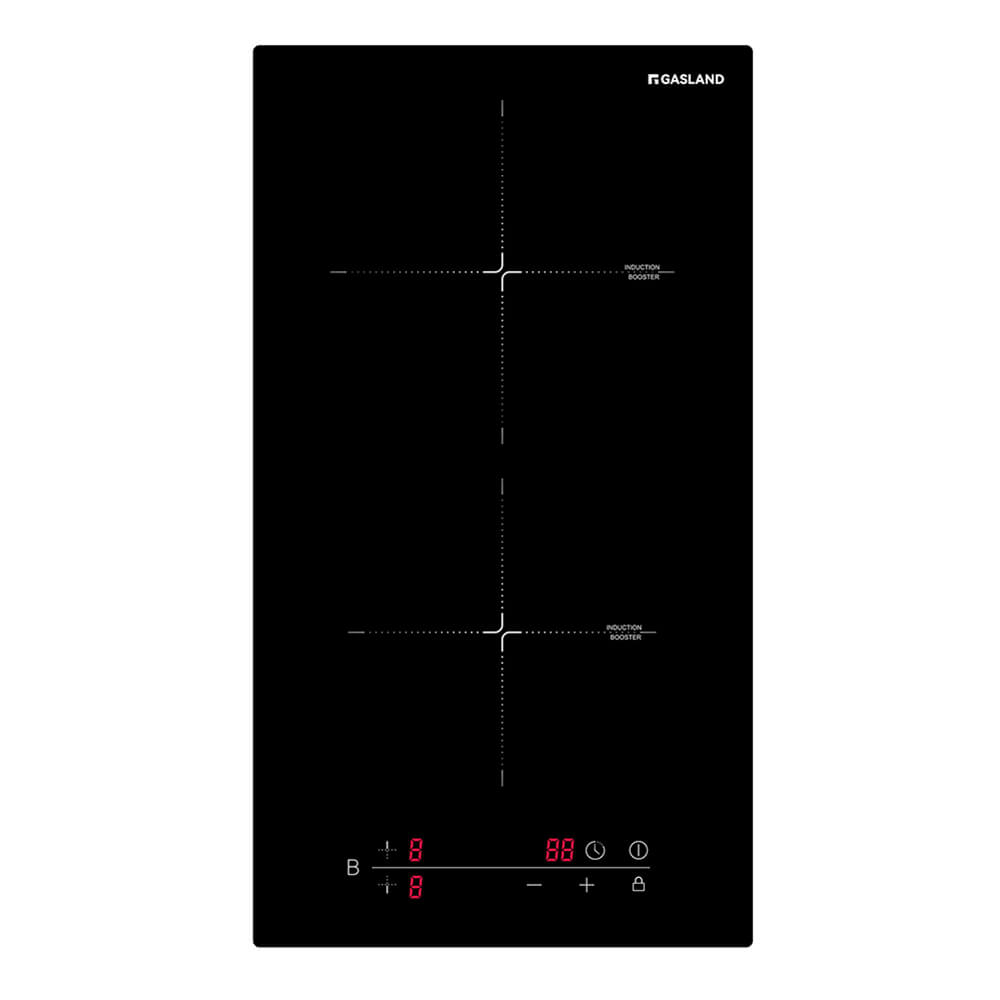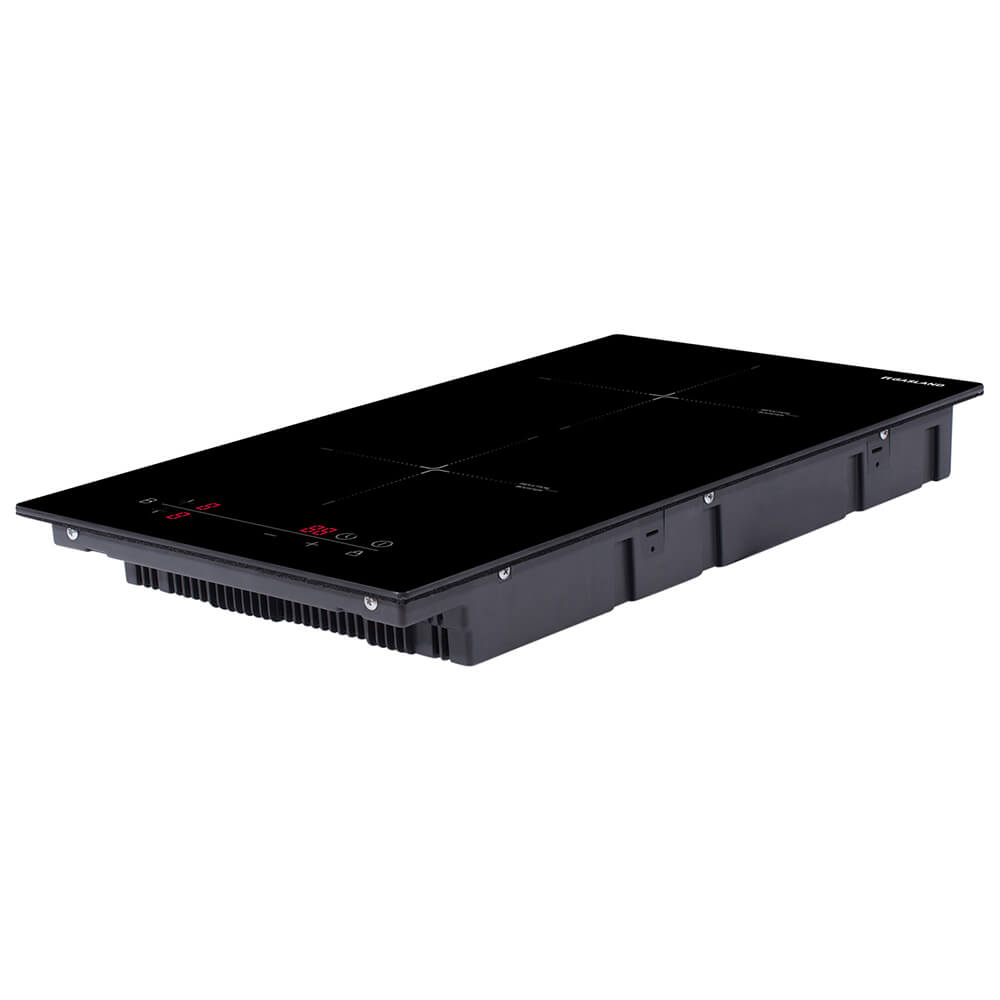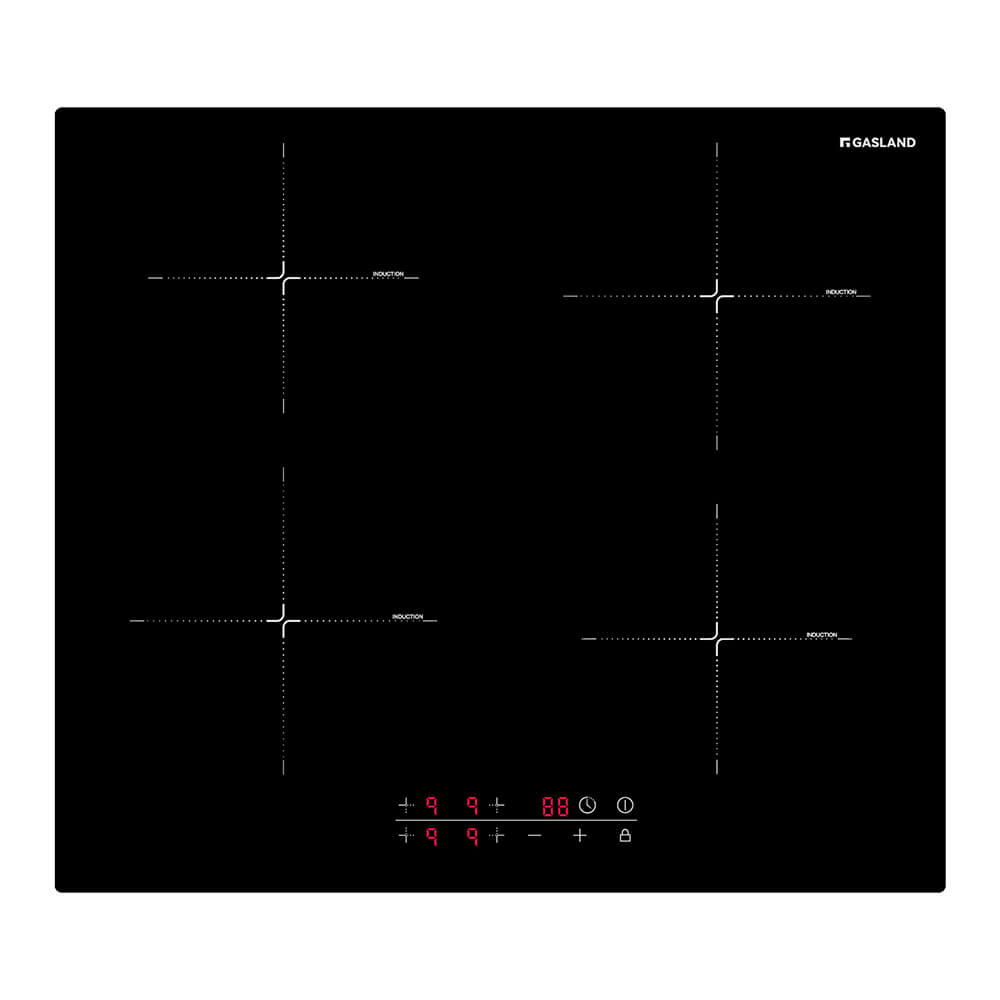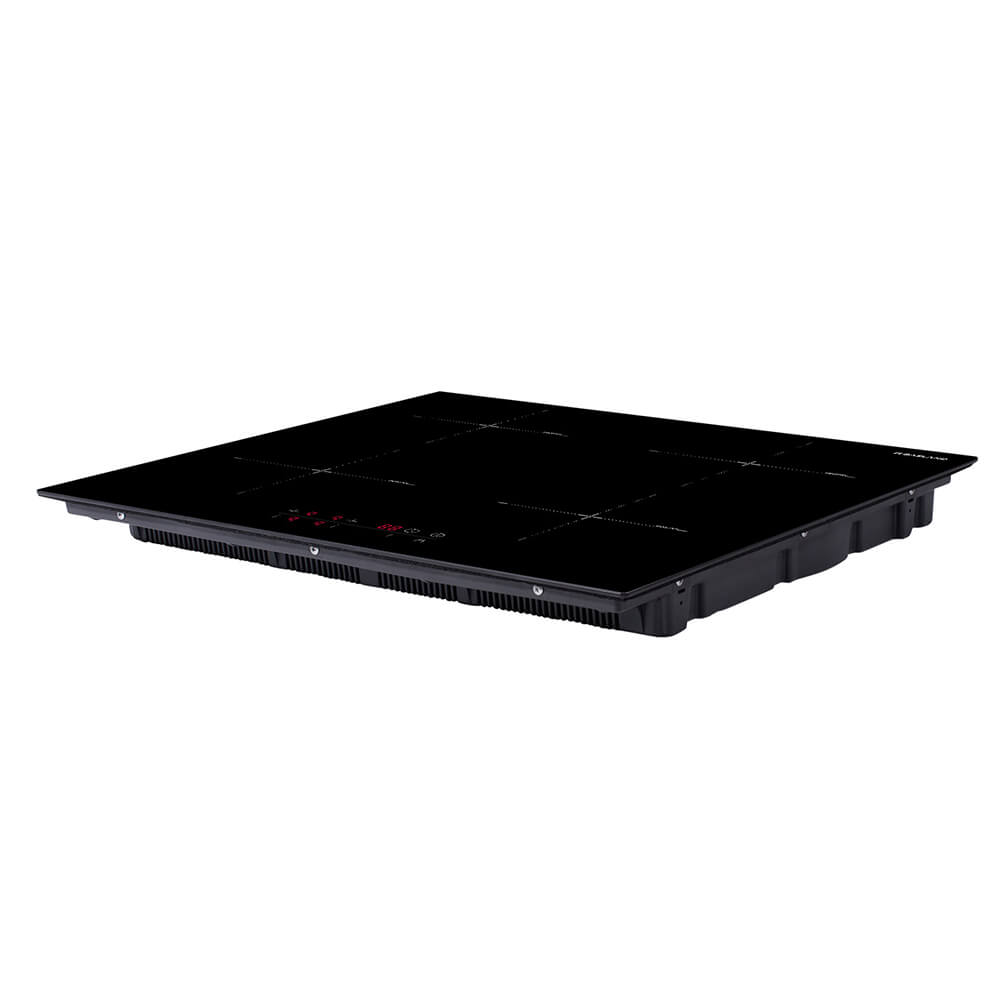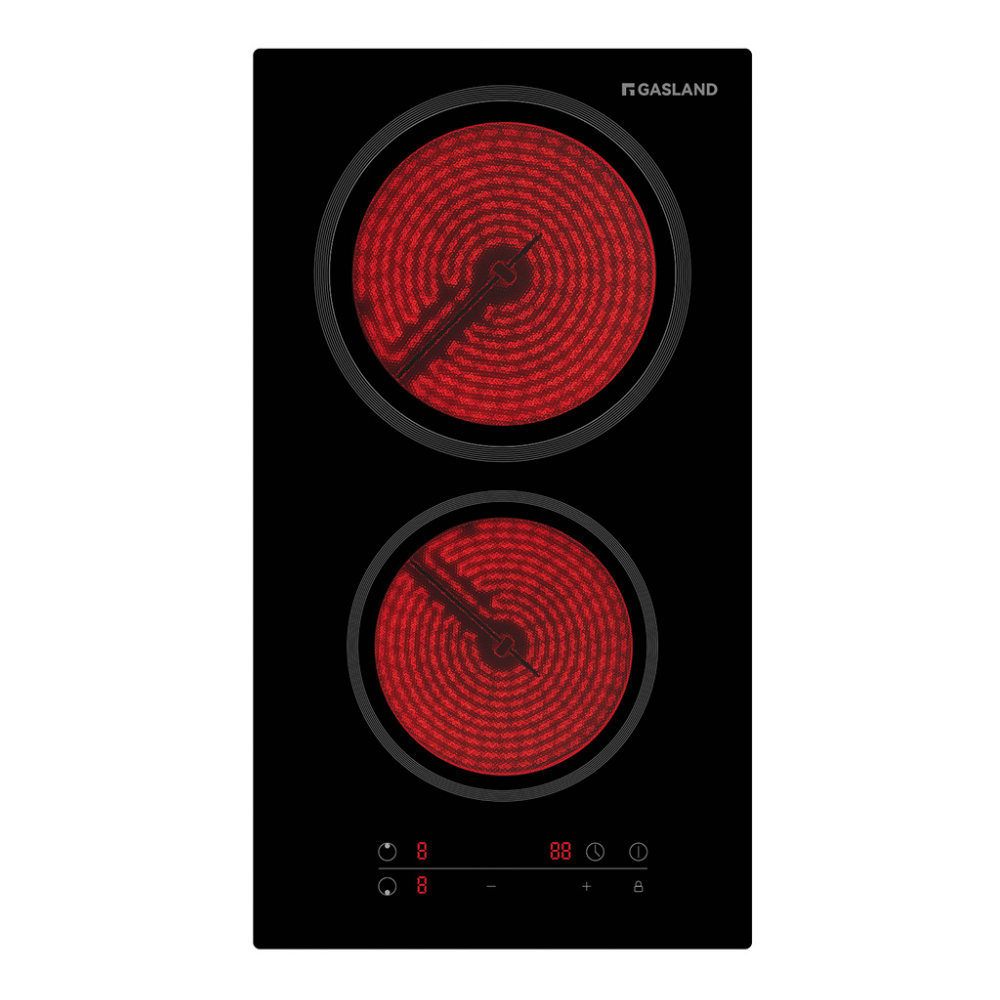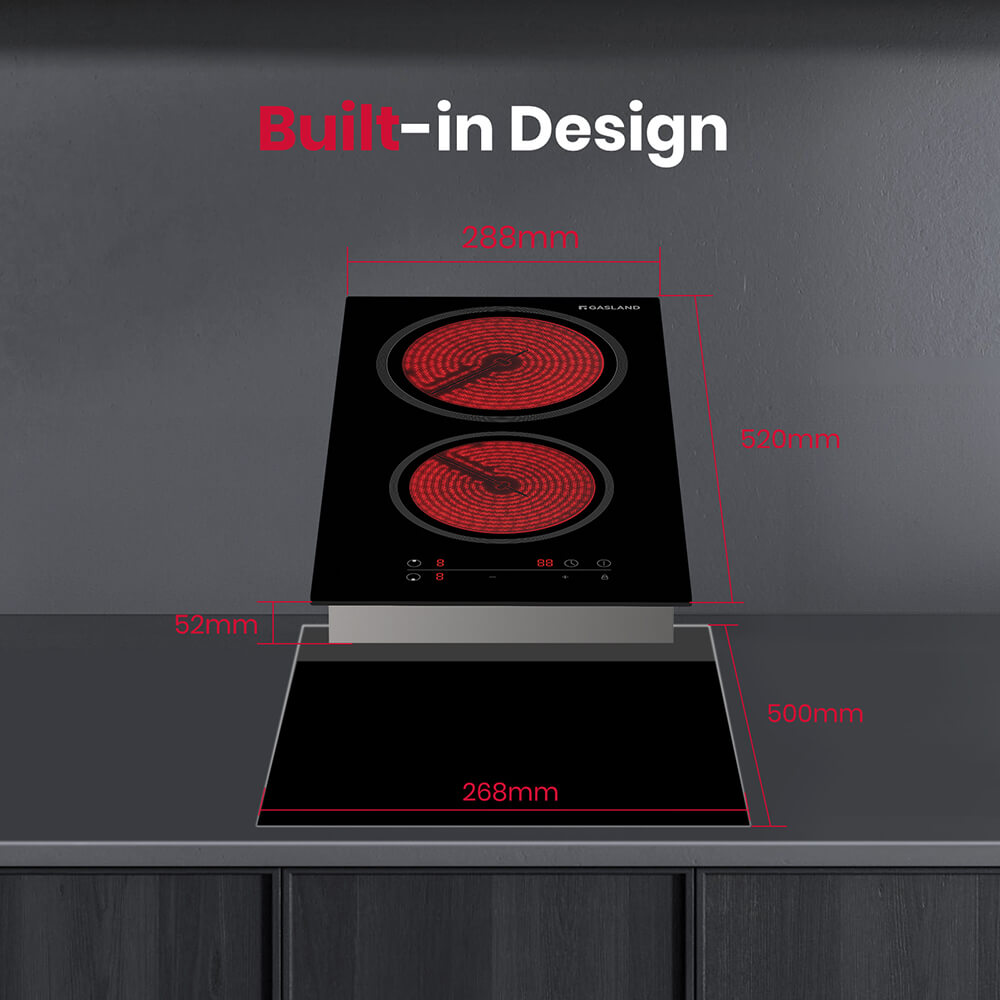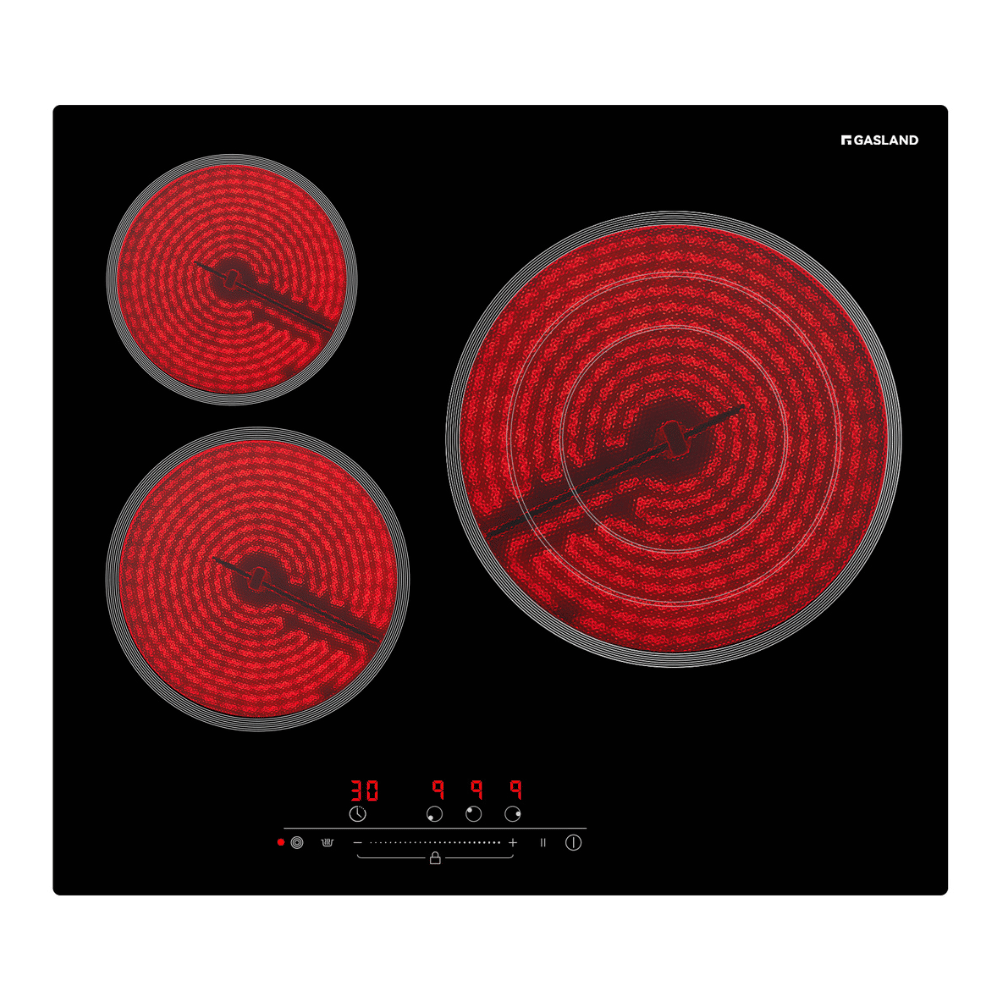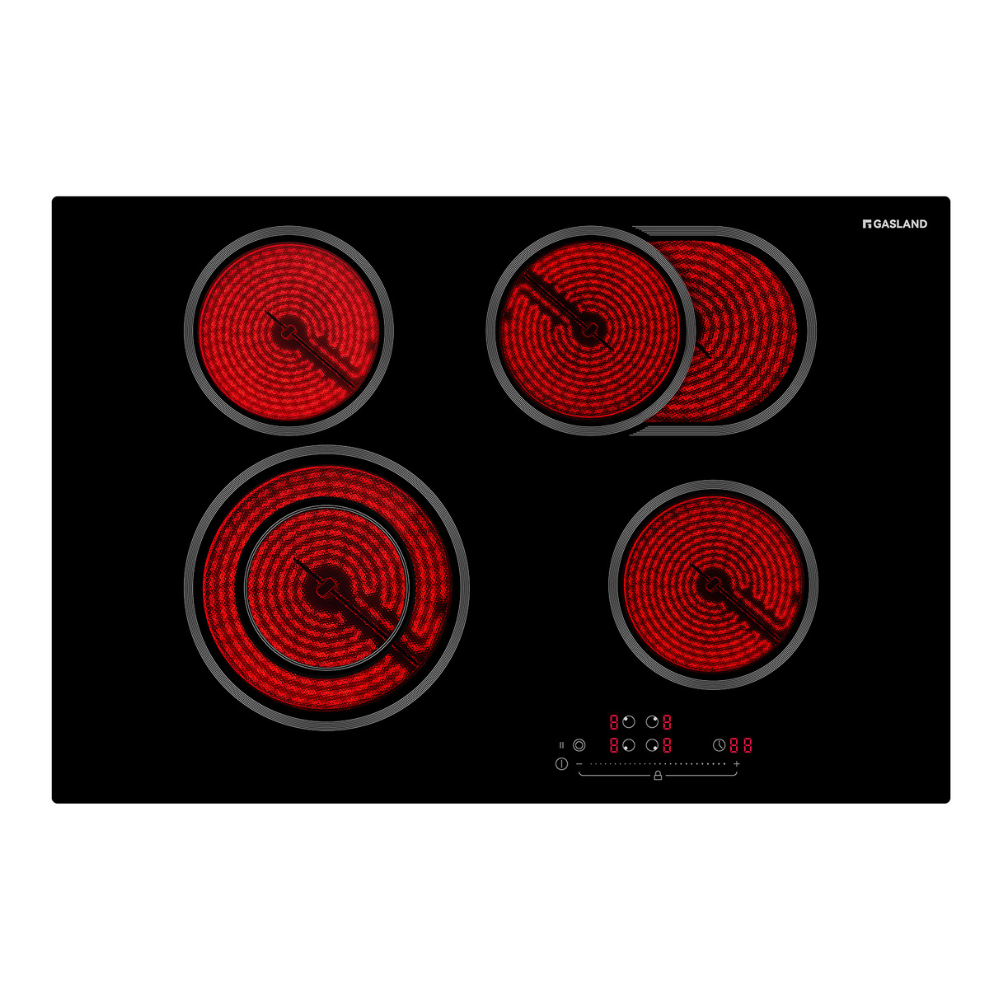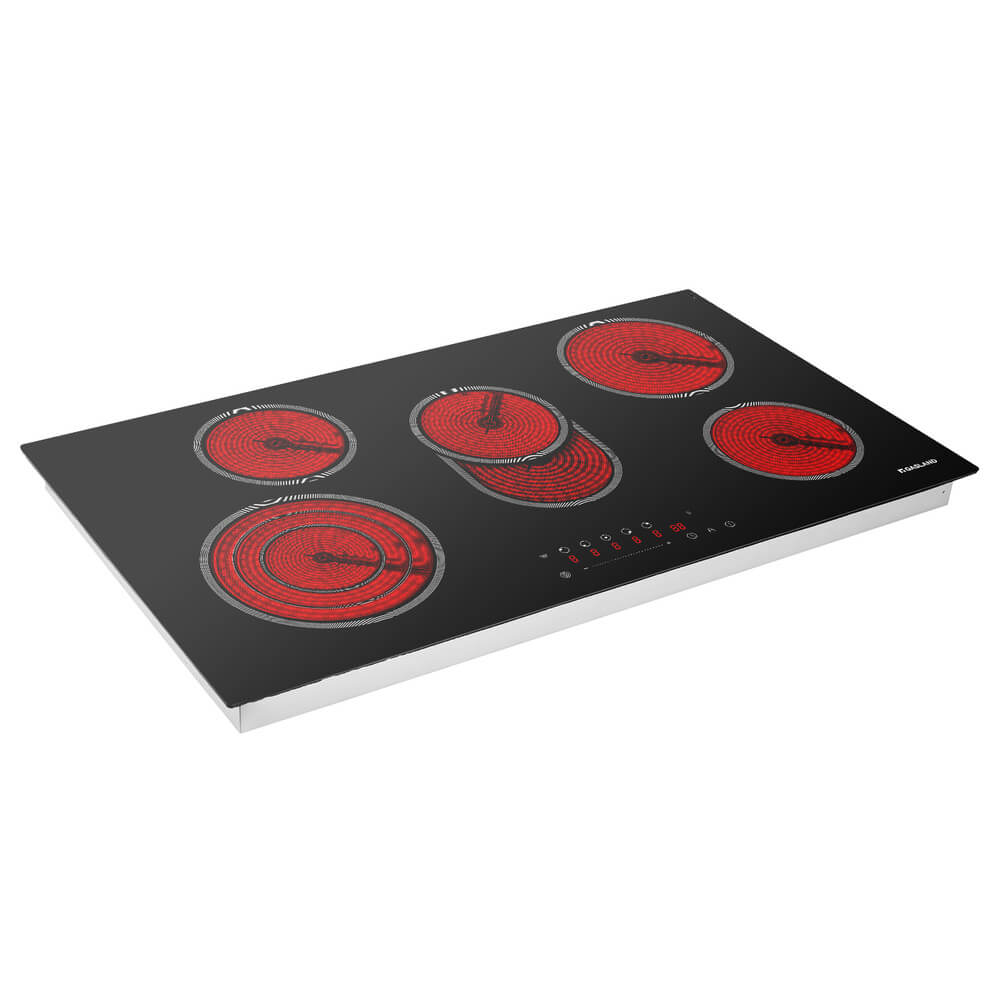If you’re remodeling your kitchen to include some kitchen essentials or buying a newly built home, you might be comparing gas vs. electric cooktios. Not only can they look quite a bit different from each other, but there are also some tremendous differences in how they perform. Gourmet cooks swear by some, and moms with large families may prefer a completely different kitchen stove. To make sure you get the one that’s right for you read on and we’ll tell you all the major pros and cons for each one, plus the gas vs. electric cost. Once you have all the data, you can decide for yourself what fits your kitchen layout and style.
Gas Cooktops
Ask 100 chefs what type of kitchen stove they prefer, and 96% of them will say gas. That may be because that’s what they were taught to cook on in school or are used to using at home. But overall gourmet cooks and chefs wouldn’t consider cooking on an electric range. Because of that, even our own GaslandChef The Entertainer and The Chefologist’s kitchen designs feature a gas cooktop.
A few of the main reasons chefs prefer gas is because the burners and oven heat up much faster than electric stoves and the gas flame works better with different types of cookware, especially if the bottom isn’t completely flat. Compared to a cooktop that has to be specially cleaned, gas cooktops are much easier to maintain. Let’s look at some more pros and cons of gas cooking.
Gas Cooktop Pros
You can save 10% to 30% in energy costs when you cook with gas. That’s because, in most states, electricity is more expensive than gas. That can be quite a savings if you cook a lot or have a large family. When weighing in against gas vs electric you should really be considering the cost.
1. Gas can be cheaper than electric in most states
2. Instant control of heat from high to low instantly
3. Stove and oven heat faster
4. More versatile for grilling, searing, and simmering
5. Temperature is much easier to control
6. The stovetop is easier to clean
7. Works well with many different types of pots and pans
Gas Cooktop Cons
Although there are many things to love about cooking with gas there are some things that you should take into consideration.
1. Turning them on is not as foolproof as an electric stove
2. Sometimes the burner won’t light
3. Pilot light goes out
4. The burner flame can be weak
5. There can be ventilation problems
6. Gas can create a greasy surface
Electric Cooktops
Many times choosing between electric and gas kitchen stove is totally dependent on what’s already there. Most homes have 220-volt electricity, so it’s easy to just plug it in. Otherwise, an electrician can install the plug you need. If you’re building a new home, you still may not have natural gas, so an electric stove is still your only option. Let’s look at some of the other reasons cooks like and dislike electric.
Electric Cooktop Pros
Here are a few of the top reasons cooks prefer an electric stove them:
1. The kitchen stays cooler with an electric stove
2. With a cooktop, there’s a flatter surface to clean
3. The flatter surface is more stable for pots
4. They are easier to turn on and off
5. Your kitchen probably is already set up with 220v
6. They can be easier and less expensive to install
Electric Cooktop Cons
Now let’s look at what isn’t so great about cooking with electricity.
1. It’s easier to burn yourself because you can’t tell if it’s on
2. Newer models with advanced features can cost more than gas
3. Electric stoves use about three times more energy than gas
4. If the power goes out, so does the stove
5. Cooktops can get damaged if something is dropped on it
6. They cook food slower than gas
GaslandChef knows that no two cooks are the same, so we build kitchens that cater to what our home buyers ask for. Some homeowners want a large kitchen filled with lots of light, others need a layout that is perfect for entertaining, and of course, we know that the chefs want to show off their culinary skills. We’re proud to be able to give all of our customers the custom kitchen design they’ve asked for.



